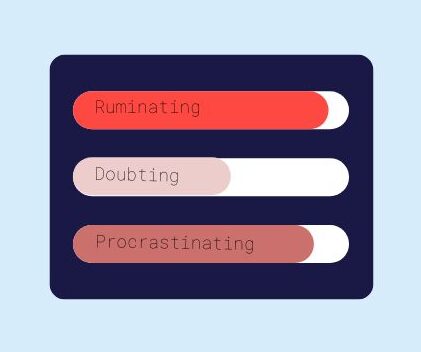
What is Gay OCD?
One type of obsessive compulsive disorder that have been very minimally researched is Gay OCD that involves obsessions and compulsions around sexual orientation.
Sexual orientation fears may involve fear been sexually attracted to individuals of the same sex, fear about engaging in sexually inappropriate behavior, fear of an unwanted change in sexual orientation, fear that others may believe that one is homosexual, or fear that one has hidden homosexual desires (Williams, Crozier, & Powers, 2011).
Compulsions may include evaluating arousal levels (e.g., for a female person: am I feeling attracted to her when I look at her breasts? Does it mean I’m a lesbian now?
Or when engaging in sexual intercourse a compulsion could be checking and rechecking sexual excitement with partner of the opposite sex to make sure it’s a legitimate sexual experience (e.g., Do I really feel arouse right now? Did I really have an orgasm?).
Another common compulsion is seeking reassurance from friends, relatives and even therapists about one’s sexual identity.
Avoidance behaviors may include keeping physical distance from individuals of the same gender to guarantee that sexual arousal or inappropriate touching does not occur, avoiding events in which one would be required to be close to people of the same gender.
What is the most effective treatment?
If you or anyone you know suspects they are experiencing sexual identity OCD, it likely feels exceptionally debilitating, confusing, and shaming. Fortunately, there is an empirically supported cognitive behavioral therapy for OCD, Exposure and Response Prevention (ERP).
ERP process is the same as that with other types of OCD. One would be asked to expose themselves to their intrusive fear (obsessions) while inhibited any compulsions and avoidance behaviors.
If you suspect that you might be suffering from Gay OCD, below are some questions you might ask yourself. It is also strongly recommended that you consult with a mental health provider who can provide you with clarification about your diagnosis!
Do you find yourself spending hours each day…
- Looking at attractive men or women, including pictures of them, to see if they are sexually exciting?
- Imagining yourself in sexual situations and then observing your reaction to them?
- Observing yourself for evidence of appearing (ie: walking, dressing, or talking) like someone who identifies as heterosexual or homosexual?
- Compulsively reviewing past interactions with other men or women to evaluate whether you have acted like heterosexual or homosexual person?
- Repeatedly seeking reassurance from others about your sexual identity?
(Modified from Penzel, 2014).
References
Gordon WM. Sexual obsessions and OCD. Sexual and Relationship Therapy. 2002;17:343–354
Penzel, F. (n.d.). How Do I know I’m Not Really Gay? (2014, May 22). Retrieved March 13, 2016, from https://iocdf.org/expert-opinions/homosexual-obsessions/
Williams, M. T., Crozier, M., & Powers, M. (2011). Treatment of Sexual-Orientation Obsessions in Obsessive-Compulsive Disorder Using Exposure and Ritual Prevention. Clinical Case Studies, 10(1), 53–66. http://doi.org/10.1177/1534650110393732







